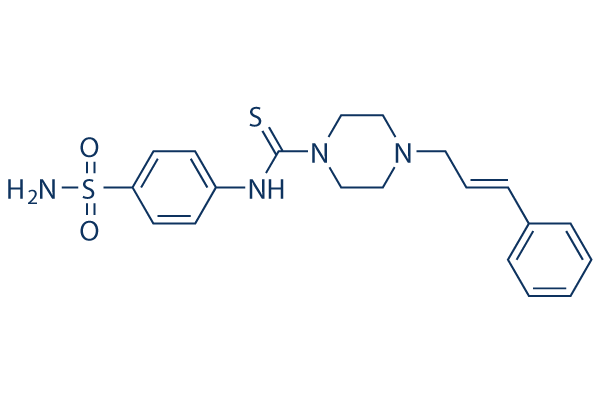All AbMole products are for research use only, cannot be used for human consumption.

In vitro: LF3 does not cause cell death or interfere with cadherin-mediated cell-cell adhesion. The self-renewal capacity of cancer stem cells is blocked by LF3 in concentration-dependent manners, as examined by sphere formation of colon and head and neck cancer stem cells under nonadherent conditions. LF3 inhibits Wnt/β-catenin signaling, but does not interfere with E-cadherin/β-catenin-mediated cell-cell adhesion. LF3 blocks the expression of a series of Wnt target genes in Wnt-addicted colon cancer cells. It inhibits proliferation of Wnt-addicted colon cancer cells through induction of cell-cycle arrest and also inhibits self-renewal capacity of CSCs. In vivo: LF3 reduces tumor growth and induces differentiation in a mouse xenograft model of colon cancer while exhibiting no significant toxicity for mice and does not disturb the normal histology of the gut of mice.
| Cell Experiment | |
|---|---|
| Cell lines | The cell lines HCT116, HCT15, HT29, SW480, SW620, LS174T, SW48, MCF7, HeLa, HEK293, and MDCK |
| Preparation method | β-catenin is immunoprecipitated from protein extracts of the cells that are incubated with LF3 at increasing concentrations, and reduced TCF4 and LEF1 bound to β-catenin are shown by Western blotting. |
| Concentrations | 3.3-60 μmol/L |
| Incubation time | 24 h |
| Animal Experiment | |
|---|---|
| Animal models | NOD/SCID mice |
| Formulation | |
| Dosages | 50 mg/kg |
| Administration | i.v. |
| Molecular Weight | 416.56 |
| Formula | C20H24N4O2S2 |
| CAS Number | 664969-54-4 |
| Solubility (25°C) | 63 mg/mL in DMSO |
| Storage |
Powder -20°C 3 years ; 4°C 2 years In solvent -80°C 6 months ; -20°C 1 month |
| Related Wnt/beta-catenin Products |
|---|
| (9Z,12Z,15Z)-N-[(3-Methoxyphenyl)methyl]-9,12,15-octadecatrienamide
(9Z,12Z,15Z)-N-[(3-Methoxyphenyl)methyl]-9,12,15-octadecatrienamide is a macamide isolated from Maca (Lepidium meyenii Walp). (9Z,12Z,15Z)-N-[(3-Methoxyphenyl)methyl]-9,12,15-octadecatrienamide induces mesenchymal stem cells osteogenic differentiation and consequent bone formation through activating the canonical Wnt/β‐catenin signaling pathway. |
| F7H
F7H is a Frizzled receptor FZD7 antagonist with IC50 of 1.25 μM. F7H is a potent ligand for the FZD7 transmembrane domain (TMD). |
| UU-T02
UU-T02 is a novel potent, selective small-molecule inhibitor of β-Catenin/T-cell factor protein-protein interaction, with a Ki of 1.36 μM. UU-T02 inhibits canonical Wnt signaling. |
| Wnt/β-catenin agonist 1
Wnt/β-catenin agonist 1 is a Wnt/β-catenin signalling pathway agonist, with an EC50 of 0.27 μM. |
| Calphostin C
Calphostin C (PKF115-584) is a small molecule inhibitor of Wnt/beta-catenin/lef-1 signaling. Calphostin C is also a potent and specific inhibitor of protein kinase C. PKF115-584 efficiently killed CLL cells (LC(50)<1 microM), whereas normal B cells were not significantly affected. |
All AbMole products are for research use only, cannot be used for human consumption or veterinary use. We do not provide products or services to individuals. Please comply with the intended use and do not use AbMole products for any other purpose.


Products are for research use only. Not for human use. We do not sell to patients.
© Copyright 2010-2024 AbMole BioScience. All Rights Reserved.
